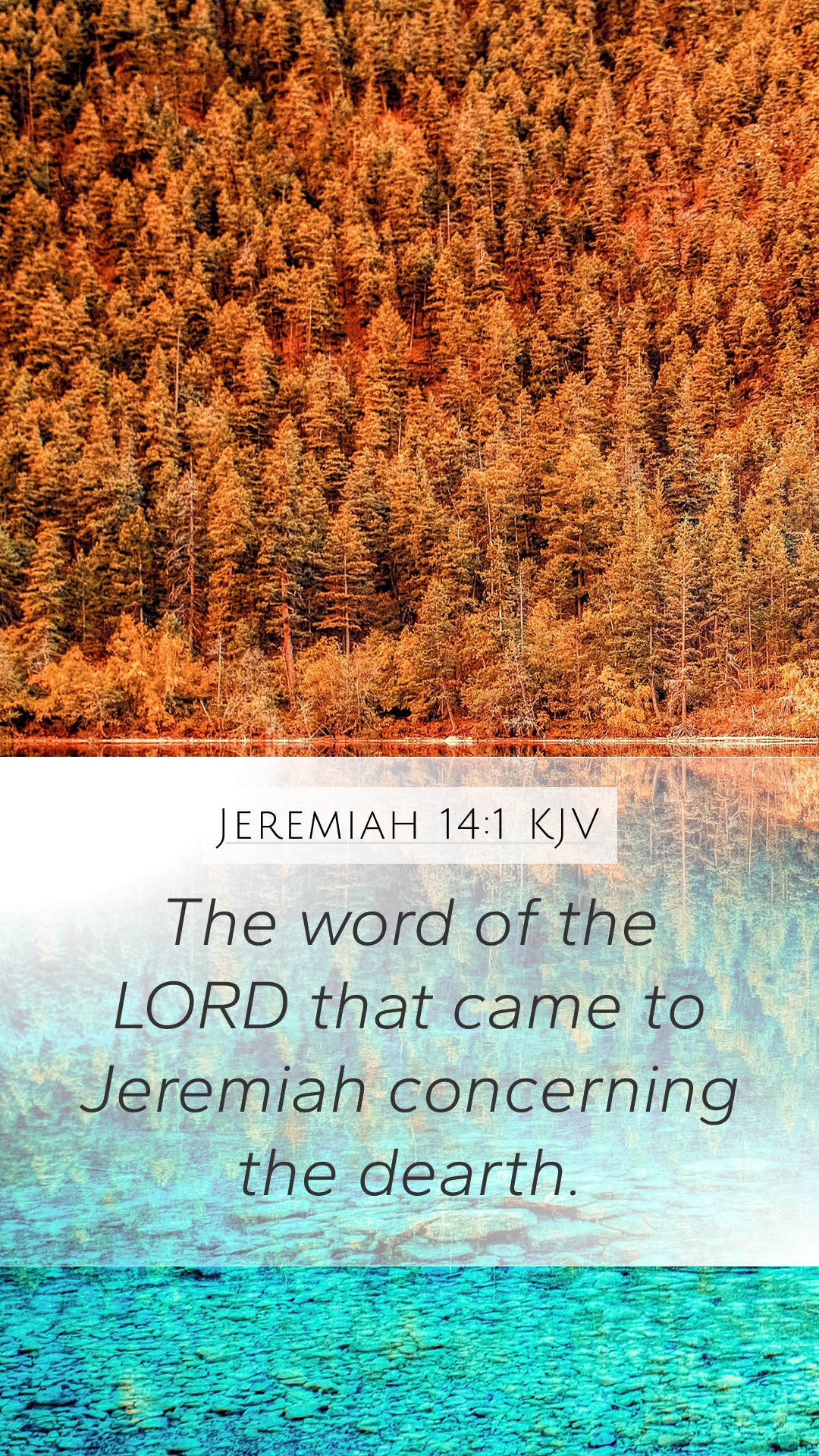Understanding Jeremiah 14:1
The verse Jeremiah 14:1 states:
"The word of the LORD that came to Jeremiah concerning the drought." (Jeremiah 14:1, KJV)
This verse serves as a solemn introduction to a prophetic message regarding the dire conditions facing the land of Judah due to a severe drought. The context is essential for understanding the significance of this proclamation.
Meaning of the Verse
Jeremiah 14:1 is both straightforward and profound, revealing God's communication with His prophet Jeremiah during a time of crisis. The implications of this drought serve as both a literal hardship for the people and as a metaphorical reflection of their spiritual state.
Insights from Public Domain Commentaries
-
Matthew Henry:
Henry emphasizes that this drought was not just a natural calamity but a manifestation of God's judgment against sin. He interprets the divine message received by Jeremiah as a call to repentance and a reminder of the consequences of turning away from God.
-
Albert Barnes:
Barnes notes that the phrase “the word of the Lord” signifies the seriousness of the message that follows. He elaborates on how this drought symbolizes God’s withdrawal of blessing and the tangible effects of the people's iniquities. This drought was also a backdrop to the people's desperate need for divine intervention.
-
Adam Clarke:
Clarke delves into the historical and cultural context of Judean society at the time, focusing on the agricultural implications of a drought. He highlights that the drought was not just a physical reality but served as an urgent sign for the nation to reflect on their spiritual and moral failings.
Context and Application
The context surrounding Jeremiah 14:1 is crucial for deeper Bible verse understanding. This verse captures a moment of lamentation for the people of Judah, who are facing the severe consequences of their disobedience. It illustrates the theme of divine warning—a consistent motif throughout the Book of Jeremiah.
Historical Context
The historical context reveals that this prophecy was set against a background of impending calamities due both to natural disasters and the moral failings of the people. During droughts, agricultural societies suffer immensely, which can lead to riots, famine, and a loss of faith in divine providence. This makes it a pivotal communication of God's displeasure and a clarion call for change.
Spiritual Significance
This verse functions as a reminder of God's ongoing relationship with His people. The drought serves as an allegory for spiritual barrenness, encouraging believers to examine their lives and turn back to God for sustenance, both physically and spiritually.
Connections to Other Scriptures
Further understanding of Jeremiah 14:1 can be gleaned by analyzing several related passages:
- 2 Chronicles 7:13-14: These verses emphasize the importance of repentance in the face of national calamity.
- Isaiah 5:24: This verse speaks to the consequences of rejecting the law of the Lord and serves as a parallel to Jeremiah’s message.
- Lamentations 3:39-40: These verses highlight the urgency of self-examination and turning back to God.
Conclusion
In summary, Bible verse interpretations of Jeremiah 14:1 reveal a profound message about the nature of God's communication during times of crisis. By diving into both the literal and metaphorical meanings presented in this verse, believers can draw Bible study insights that encourage introspection and a return to faithfulness.
For those investigating the meaning of Bible verses, Jeremiah 14:1 underscores the necessity of recognizing the gravity of one’s spiritual state in relation to God. It serves as a reminder that divine messages often come during our most desperate times, calling us to seek restoration and awakening in our lives.
As you engage in Bible study courses or online Bible study, consider how the implications of drought in Jeremiah's time resonate with the spiritual droughts faced in contemporary society. How can this message guide our actions and thoughts today?


